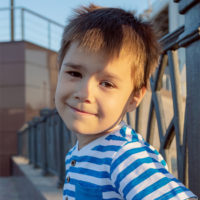Post Traumatic Stress Disorder (PTSD)
-

Cognitive processes mediate the post-traumatic stress trajectory in adolescents
A new study has shown that cognitive processes shape the early reactions of children and adolescents to traumatic stressors, and mediate the transition to persistent and clinically significant post-traumatic stress symptoms (PTSS).
Read more -

In conversation… Professor Andrea Danese discusses Trauma
Andrea discusses the impact trauma has on the child, the Topic Guide on Trauma he wrote with Dr Patrick Smith for ACAMH. He also talks about the recent paper in The Lancet ‘The epidemiology of trauma and post-traumatic stress disorder in a representative cohort of young people in England and Wales’ Lewis, S J et al, and its findings.
Read more -

PTSD edition
Trauma can occur in many forms from single exposure to a life-threatening or fear-inducing event, to sustained trauma ranging from neglect, other abuses, famine or war. All of which can present in clinical practice.
Read more -

Eye movement desensitization and reprocessing improves PTSD symptoms in children
Practice guidelines for childhood post-traumatic stress disorder (PTSD) recommend trauma-focused psychological therapies as the first-line treatment. The primary approach is trauma-focused cognitive behavioural therapies, which have a large evidence base.
Read more
